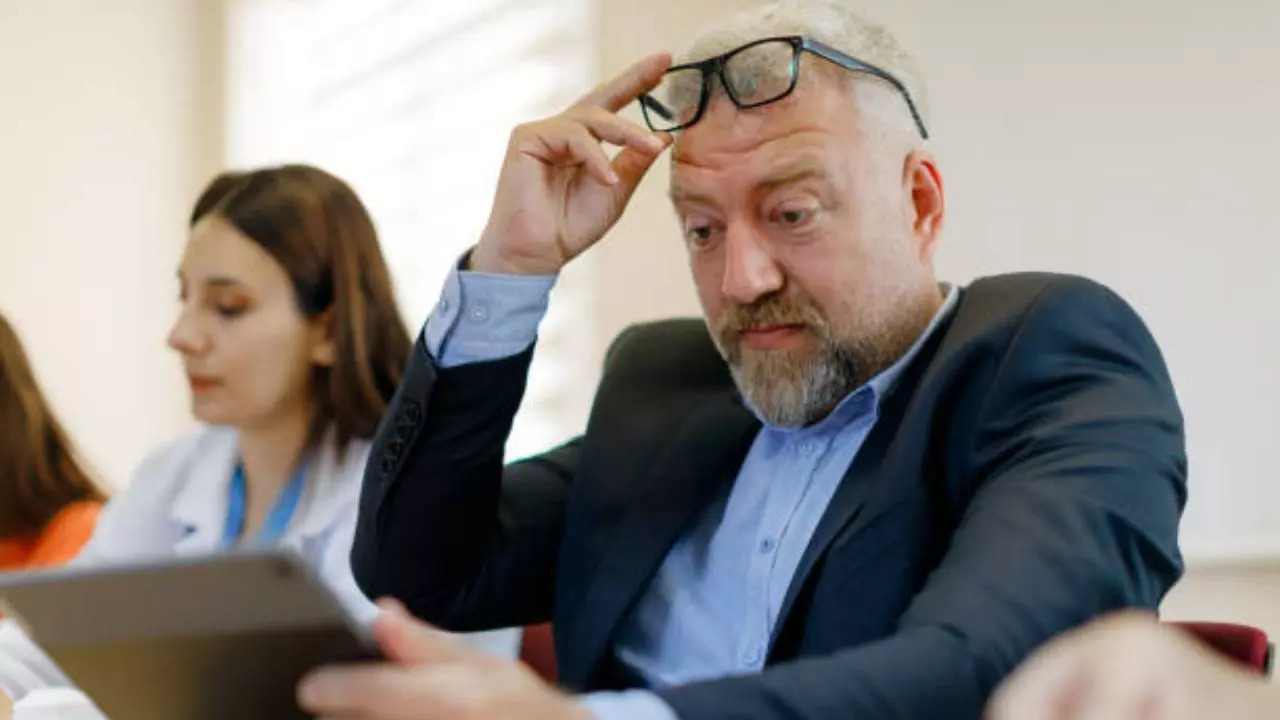Contents
-
news
-
Health
Diabetic retinopathy on the rise: How India can prevent vision crisis – experts explain
With over 101 million diabetic patients in India, diabetic retinopathy (DR) is a major concern, which can potentially lead to blindness. Experts stress the need for timely diagnosis, as DR often goes undetected. Read on to know how lifestyle changes, diet modifications and pollution levels are increasing the risk of DR.

Diabetic retinopathy on the rise: How India can stop the vision crisis – experts explain (Image credit: iStock)
India is known as “diabetes Capital of the world.” More than 101 million people in our country are suffering from diabetes, this number is expected to reach 125 million by 2045. The steady increase in diabetes cases is due to lifestyle changes such as sedentary work, increasing stress levels and co-occurring conditions like obesity. high blood pressure. Not only lifestyle changes but also continuously changing environmental patterns such as increasing pollution levels in cities have significantly contributed to this situation. Healthy diet plays an important role in managing diabetes. Eating on time with a balanced diet is the key to maintaining healthy sugar levels. Unhealthy lifestyle can lead to poor management of diabetes, resulting in its rapid progression diabetic retinopathy,
What is diabetic retinopathy?
Diabetic retinopathy (DR) is an eye condition that can cause vision loss and blindness in people with diabetes. It affects the blood vessels in the retina (the light-sensitive layer of tissue at the back of your eye).
Dr. Manisha Agarwal, Secretary General, Vitreo Retinal Society of India, explains that diabetic retinopathy is common in the working age population and impacts their physical and mental health. If not diagnosed timely, this condition can become a major cause of blindness in India, causing huge economic burden.
With a national prevalence of 12.5 per cent diabetic retinopathy and 4 per cent vision-threatening diabetic retinopathy (VTDR), nearly 3 million Indians are at risk of vision loss. This shows the critical need for timely screening for DR in every diabetic patient to prevent irreversible loss of vision, which may go undetected in its early stages and is thus known as the ‘silent thief of vision’. goes.
Vitreo Retinal Society of India (VRSI) has recently collaborated with the Research Society for the study diabetes in india (RSSDI) to launch national guidelines for diabetic retinopathy screening. According to the guidelines, duration of diabetes is an important risk factor for the onset of diabetic retinopathy, and its progression is influenced by the state of metabolic control.
Diabetic Retinopathy Screening Guidelines:
Type 1 Diabetes Mellitus:
An initial eye examination is recommended 5 years after diagnosis of type 1 diabetes mellitus.
Type 2 Diabetes Mellitus:
An initial eye examination is recommended at the time of diagnosis of type 2 diabetes.
Pregnancy in patients with diabetes mellitus:
– It is important for women with diabetes and those who are planning to become pregnant to assess their risk of developing diabetic retinopathy. Therefore, it is recommended that they get their first screening for diabetic retinopathy before conceiving. Additionally, these women are advised to have follow-up examinations during the first trimester of pregnancy to monitor any changes in their retinal health.
Severity of Diabetic Retinopathy:
– No obvious DR: Annual fundus photo screening in physician clinic.
– Any evidence of DR or DME: immediate referral to an ophthalmologist.
Please note: DME- Diabetic Macular Edema
“In India, the increasing number of people suffering from diabetes reflects the importance of not only monitoring glucose levels but also getting regular checkups done for other health complications associated with diabetes to maintain overall health. Diabetic retinopathy is a This is a complication that, if left untreated, can lead to serious and often irreversible vision loss. These guidelines play an important role in raising awareness among general practitioners and diabetes specialists about the critical need for timely diabetic retinopathy screening. Will fulfill,” said RSSDI General Secretary Dr. Sanjay Aggarwal.
Get the latest news live on Times Now with breaking news and top headlines from health and around the world.
diabetes

